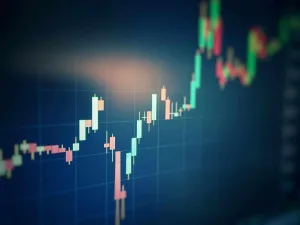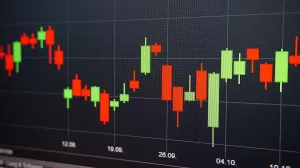What is the role of LME brokers in trading?
3 min read
What is the role of LME brokers in trading?
LME brokers serve as indispensable intermediaries in the intricate world of commodity trading, facilitating transactions, providing market insights, and ensuring smooth execution for market participants. As key players in the London Metal Exchange (LME), brokers play a multifaceted role in connecting buyers and sellers, navigating market complexities, and driving liquidity in the global metals market. In this comprehensive guide, we unravel the pivotal role of LME brokers in trading, exploring their functions, responsibilities, and significance in shaping market dynamics.
1. Facilitating Trade Execution
At the heart of their role, LME brokers act as facilitators of trade execution, connecting buyers and sellers and enabling transactions to take place seamlessly. Brokers leverage their expertise, networks, and trading platforms to match buyers with sellers at competitive prices, ensuring efficient price discovery and optimal execution for their clients. Whether executing spot trades, futures contracts, or options, brokers play a vital role in ensuring timely and cost-effective execution of trades on the LME.
2. Providing Market Insights and Analysis
In addition to facilitating trade execution, LME brokers offer valuable market insights, analysis, and research to their clients, helping them navigate market trends, identify trading opportunities, and manage risk effectively. Brokers leverage their in-depth knowledge of market fundamentals, technical analysis, and macroeconomic trends to provide clients with actionable intelligence and strategic guidance. By staying abreast of market developments and communicating timely updates to their clients, brokers empower traders and investors to make informed decisions in the fast-paced world of commodity trading.
3. Offering Risk Management Solutions
Risk management is a cornerstone of commodity trading, and LME brokers play a crucial role in helping clients manage and mitigate various forms of risk, including price risk, liquidity risk, and counterparty risk. Brokers offer a range of risk management solutions, including hedging strategies, derivative products, and portfolio optimization techniques, tailored to the specific needs and objectives of their clients. By providing access to hedging tools such as futures contracts and options, brokers enable market participants to protect against adverse price movements and safeguard their profit margins.
4. Navigating Regulatory Compliance
Commodity trading is subject to a complex web of regulatory requirements and compliance obligations, and LME brokers play a vital role in guiding clients through the regulatory landscape. Brokers ensure that their clients adhere to relevant regulations, exchange rules, and industry best practices, minimizing the risk of regulatory breaches and ensuring market integrity. By staying informed about regulatory developments and communicating compliance requirements to their clients, brokers help maintain trust and confidence in the integrity of the markets.
5. Fostering Client Relationships
Beyond their transactional role, LME brokers foster long-term relationships with their clients, built on trust, transparency, and integrity. Brokers act as trusted advisors, providing personalized service, responsive support, and strategic guidance to their clients throughout their trading journey. By understanding their clients’ unique needs, preferences, and objectives, brokers tailor their services and solutions to deliver value and drive client success in the competitive world of commodity trading.
Conclusion: The Backbone of Trading Operations
In conclusion, LME brokers serve as the backbone of trading operations on the London Metal Exchange, playing a vital role in facilitating transactions, providing market insights, managing risk, and fostering client relationships. As trusted intermediaries, brokers bridge the gap between buyers and sellers, navigate market complexities, and drive liquidity in the global metals market. By leveraging their expertise, networks, and industry knowledge, brokers empower market participants to navigate the challenges and opportunities of commodity trading with confidence and clarity.
By understanding the pivotal role of LME brokers in trading, market participants can gain insights into the dynamics of commodity markets, optimize their trading strategies, and capitalize on emerging opportunities. Whether it’s executing trades, managing risk, or staying informed about market trends, brokers play a crucial role in shaping the success and resilience of the global metals market, ensuring efficiency, transparency, and integrity in trading operations.






